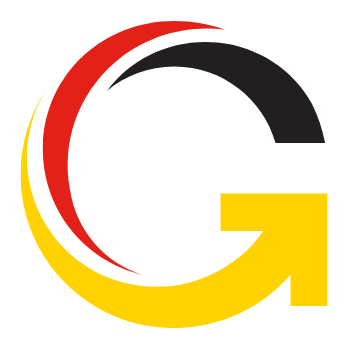Introduction
In the introduction, elaborate on the significance of learning German as a foreign language. Discuss the growing importance of German globally, especially in Europe, the business world, and academia. Touch upon how learning key phrases can be a gateway to mastering the language, and encourage beginners by highlighting how these phrases will empower them to communicate more effectively in various real-world situations.”8 Essential German Phrases For Beginner”
Additionally, explain how these phrases serve as the foundation for understanding German grammar and vocabulary. Mention the benefits of early practice and the ability to build confidence with conversational German.
1. Greetings and Polite Expressions
This section will delve into the nuances of German greetings, discussing cultural contexts, regional variations, and proper etiquette.”8 Essential German Phrases For Beginner”
- Guten Morgen (Good morning): Explain when and how to use this phrase. Provide examples of context (e.g., in formal settings, at work, in the morning).
- Guten Abend (Good evening): Discuss the appropriate time and place to use it, as well as variations depending on the time of day.
- Wie geht’s? (How are you?): Explore common ways to ask someone how they’re doing, including formal and informal versions.
- Mir geht’s gut, danke (I’m good, thank you): Include different ways to respond, focusing on cultural differences in expressing emotions or states of well-being in German.
- Auf Wiedersehen (Goodbye): Detail the usage of this more formal farewell and how it differs from other farewells.
- Tschüss (Bye): Contrast this informal goodbye with more formal alternatives, and discuss its prevalence in casual conversations.
By offering deep insights into each phrase, the section will cover the history of these greetings, how they’re used in everyday German life, and what to keep in mind when saying them. You can also add personal anecdotes or examples from German-speaking countries to make it more relatable. “8 Essential German Phrases For Beginner”
2. Introducing Yourself
Expanding this section will involve describing the various ways to introduce oneself in German, the context of each phrase, and how these introductions differ in formality.
- Ich heiße [Name] (My name is [Name]): Explain the structure of introducing oneself in German and how this differs from English (e.g., “Ich heiße” vs. “My name is”).
- Ich komme aus [Country] (I’m from [Country]): Explore regional variations of how Germans ask and answer questions about nationality.
- Ich spreche ein wenig Deutsch (I speak a little German): Discuss the significance of this phrase when interacting with native speakers and how it can help lower language barriers.
- Wie heißen Sie? (What’s your name? – formal): Elaborate on formal vs. informal language, and why politeness is essential in the German-speaking world.
You can expand on the importance of formal language in professional settings, social hierarchies in German-speaking countries, and why introducing oneself politely is a sign of respect. “8 Essential German Phrases For Beginner”
3. Asking for Directions
Expand this section by offering a variety of ways to ask for directions. Discuss possible scenarios like navigating public transport, asking for specific locations, and how to follow up after receiving directions.
- Entschuldigung, wo ist [place]? (Excuse me, where is [place]?): Provide more examples like, “Entschuldigung, wo ist der Bahnhof?” (Excuse me, where is the train station?) to broaden the context.
- Könnte ich den Weg zu [place] bekommen? (Could I get directions to [place]?): Offer additional polite phrases and give detailed guidance on how to ask politely in German.
- Geradeaus (Straight ahead): Explain how to follow basic directional instructions in German, including other directional terms like “rechts” (right) and “links” (left).
- Discuss how direction-giving works in German-speaking countries, and include possible complications like language barriers in rural areas or tourist spots.
- Mention the differences between rural and urban navigation and how Germans may give directions differently depending on the context.
4. Basic Conversation Starters
Deepen the content by providing numerous examples of how to start a conversation in German, focusing on topics like hobbies, weather, and general interests. You can introduce longer conversation scenarios where these questions come up.
- Was machst du gern in deiner Freizeit? (What do you like to do in your free time?): Give examples of responses and dive into how Germans typically talk about their hobbies.
- Hast du Geschwister? (Do you have siblings?): Explore common responses and discuss family dynamics in German culture.
- Was ist dein Lieblingsessen? (What’s your favorite food?): Add cultural notes on German cuisine and how food plays a role in casual conversations.
To add value, provide variations of these questions and responses depending on the situation, and discuss small talk in different regions of Germany. “8 Essential German Phrases For Beginner”

5. Ordering Food and Drinks
Here, explore not only phrases but also cultural insights into eating out in Germany. Discuss table manners, how meals are structured, and specific food-related vocabulary.
- Ich hätte gern [dish/drink]. (I would like [dish/drink]): Break down ordering in a restaurant, asking for the menu, and handling food allergies in German.
- Haben Sie eine Empfehlung? (Do you have a recommendation?): Discuss the typical structure of ordering and how waitstaff in Germany might guide you.
- Könnte ich die Rechnung bitte haben? (Could I have the bill, please?): Discuss the etiquette around paying the bill in Germany, including tips and the concept of “Trinkgeld.”
- Wasser bitte. (Water, please.): Explain the different types of water (still vs. sparkling), and how this affects restaurant orders.
You could also explore regional variations in food culture and local phrases used in specific parts of Germany (e.g., Bavaria vs. Berlin). “8 Essential German Phrases For Beginner”
6. Shopping and Bargaining
Expand on common phrases used in shopping situations, with an emphasis on both formal and informal retail settings.
- Wie viel kostet das? (How much does this cost?): Discuss various ways of inquiring about prices in stores, including haggling and polite responses.
- Haben Sie das in einer anderen Größe? (Do you have this in another size?): Talk about how to navigate shopping for clothing, shoes, and other items.
- Kann ich mit Karte bezahlen? (Can I pay by card?): Discuss payment methods in Germany, including the increasing prevalence of cashless payments.
This section can also introduce cultural nuances about bargaining in different settings, such as street markets or shopping malls. “8 Essential German Phrases For Beginner”
7. Basic Emergency Phrases
Provide an in-depth discussion of emergency situations, expanding on how to ask for help, communicate urgent needs, and the German emergency system.
- Hilfe! (Help!): Break down emergency situations and explain the importance of being able to shout for help.
- Ich habe meinen [wallet, phone, etc.] verloren. (I’ve lost my [wallet, phone, etc.]): Go into detail about what to do when you’ve lost something, and explain how German police or customer service can assist.
- Notrufnummer in Deutschland: 112 (Emergency number in Germany: 112): Describe how to use emergency numbers in Germany and outline the steps to take in different crises.
8. Polite Requests and Responses
Here, break down various ways to ask for assistance and respond politely in different situations. Focus on both formal and informal settings.
- Könnten Sie mir bitte helfen? (Could you please help me?): Include responses that vary by tone and urgency.
- Entschuldigung, sprechen Sie Englisch? (Excuse me, do you speak English?): Add context for English speakers in Germany, and explore how to politely switch languages when you’re struggling with German.
“8 Essential German Phrases For Beginner”
Conclusion (1,500-2,000 words)
Summarize the importance of learning these essential phrases as a beginner, encouraging learners to practice them in real-life situations. Offer tips for continuing their German learning journey, from finding language partners to using language apps. Also, provide resources for further study, such as recommended books, websites, and courses.
German With Gaurav!
Our academy brings you the convenience of instant access to a diverse ways to learn german langauage to boost up your career and business to other countries.





